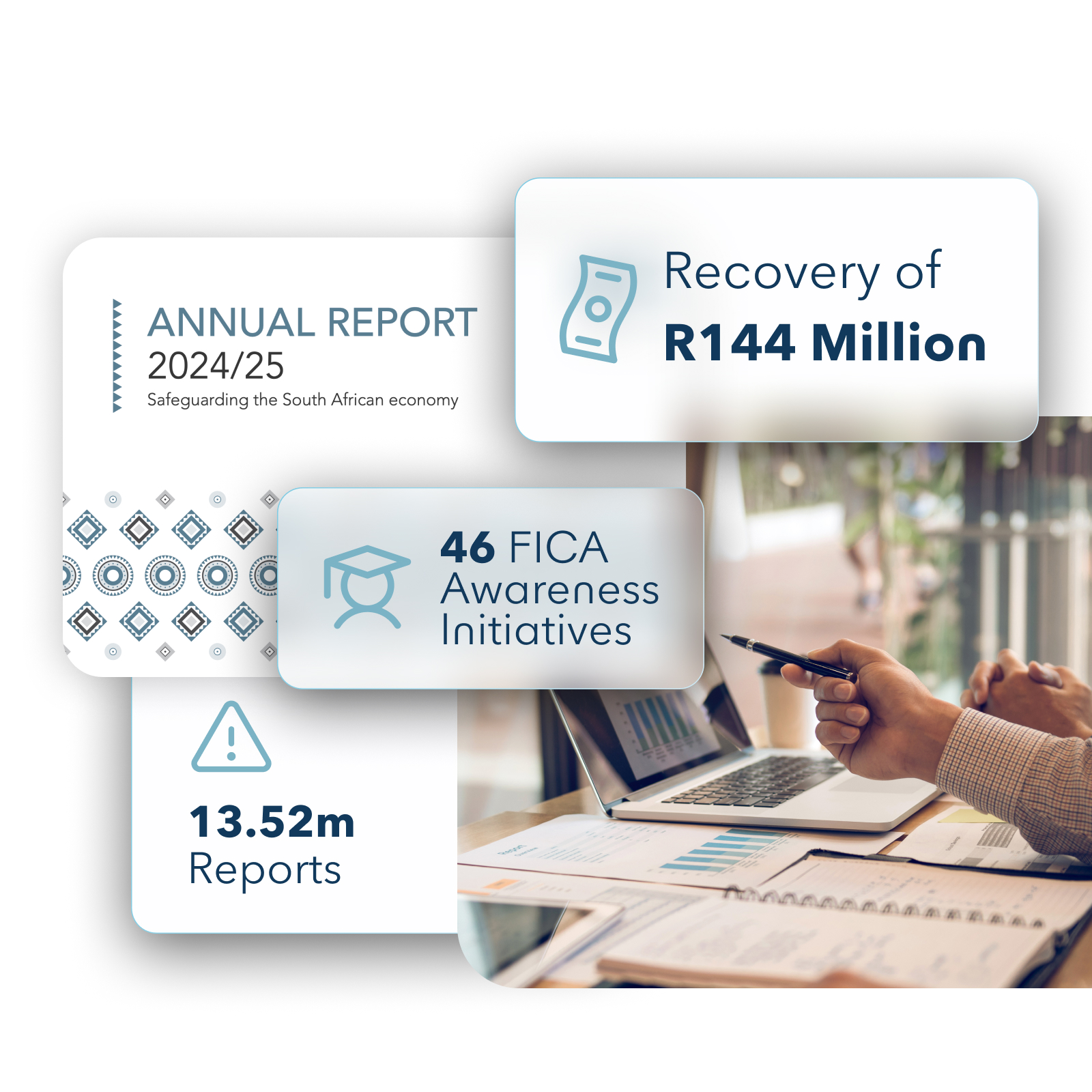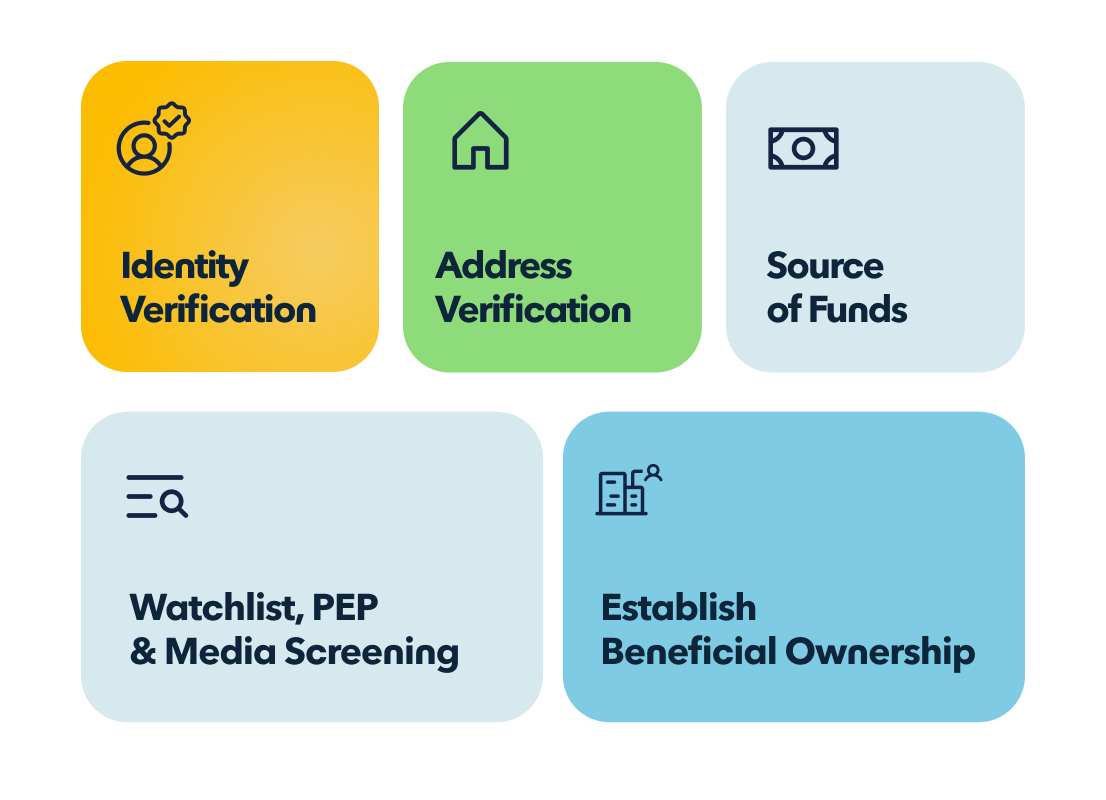The Financial Intelligence Centre (FIC) has released its annual report covering the key period of April 2024 to March 2025. With South Africa's removal from the FATF greylist on 24 October 2025, this year's release carries particular significance as it provides insight into the progress that led to this milestone achievement.
Acknowledging Key Achievements
The impressive achievements highlighted in this report deserve recognition for key stakeholders, including Pieter Smit (Acting Director), Christopher Malan (Compliance and Prevention), Priya Biseswar (Monitoring and Analysis), and Pieter Alberts (Shared Forensics). The dedication and commitment of the leadership at the FIC over the last year has been evident across the sector.
Despite capacity challenges and budgetary constraints, the FIC exceeded eight and achieved 10 of its 20 annual performance targets in 2024/25.
Strategic Focus Areas:
The FIC is focused on efficiencies and actively involved in:
- Enhancing technology capabilities including, the continued deployment of AI and machine learning
- Building institutional competencies to improve organisational performance
- Analysis and re-skilling of roles requiring forensic accounting, data management, and data analytics competencies
- Ongoing employee retention strategies
Key Achievements and Outcomes for the Year:
- The FIC contributed to the recovery of close to R144 million in criminal proceeds by providing 4,196 financial intelligence reports and 51 reports on illicit financial flows to law enforcement for their investigations, prosecutions, and applications for asset forfeiture.
- They also blocked more than R157.5 million as suspected proceeds of crime, issuing 164 section 34 directives that instructed financial institutions not to proceed with transactions while investigations were conducted.
- The FIC-led Asset Recovery Hub launched 11 investigations, recovering over R33 million in proceeds of crime. In providing financial intelligence in the Asset Recovery Hub, the FIC plays a pivotal role.
Reports to the FIC – the Driving Force
During the period under review, the 55 262 institutions registered with the FIC submitted approximately 13.5 million regulatory reports, which included:
- 3.1 million cash threshold reports with the highest volumes coming from banks, gambling institutions and foreign exchange firms
- 570,283 suspicious transaction reports with banks once again submitting the most.
- 10 terrorist property reports with 40% submitted by estate agents.
- 9.7 million international funds transfer reports, with banks and authorised dealers submitting the most.
Oversight & Remediation
During the 2024/2025 period, the FIC conducted 556 inspections which varied in scope: 66 were full-scope inspections (the inspection of all FICA compliance obligations) and 150 were limited scope inspections (the inspection of specific or identified areas such as registration with the FIC, customer due diligence (CDD), and targeted financial sanctions (TFS)). As part of the 556 inspections, 340 thematic inspections were conducted, mainly to determine whether compliance requirements for submission of risk and compliance returns (RCRs) and risk management and compliance programmes (RMCPs) were met. The legal practitioner sector received the most inspection reports (242), followed by estate agents (165).
The inspections primarily highlighted failures in:
- Undertaking and conducting a business risk assessment
- Developing and implementing an RMCP
- Registering with the FIC in a timely manner or updating registration information
- Adopting a risk-based approach to CDD
- Screening clients against the TFS list
- Filing suspicious and unusual transaction reports
Remedial actions were prescribed for 330 non-compliant institutions and those who did not remediate their non-compliance were consequently subjected to enforcement or monitoring.
The total amount paid in the 2024/25 financial year in respect of the sanctions imposed by the FIC amounted to R2 228 000.
The Schedule 2 supervisory bodies, the South African Reserve Bank (Prudential Authority and Financial Surveillance Department) and the Financial Sector Conduct Authority, also conduct FICA compliance inspections on their licensed institutions and may impose sanctions for non-compliance.
During 2024/2025 the South African Reserve Bank’s Prudential Authority and its Financial Surveillance department imposed sanctions of R143 650 000 and R1 221 452.57 respectively.
The Financial Sector Conduct Authority imposed sanctions amounting to R4 500 000 and a further R2 900 000 stemming from an appeal lodged in the previous financial year, which was dismissed in this financial year.
Supporting Guidance
It wasn't all enforcement action. The FIC published key guidance to support Accountable Institutions, including:
- Directive 3A (31 March 2025) - Dealt with the requirement for notification to the FIC of failure to report.
- PCC 50A (31 March 2025) - Dealt with the requirement for notification to the FIC of failure to report.
- Draft PCC 118A (31 March 2025) - Published for consultation on the money and value transfer service providers sector.
- Guidance Note 7A (13 February 2025) - Replaced Guidance Note 7 by including an update to Chapter 4 on the risk management and compliance programme.
- Draft PCC 23A (18 December 2024) - Published for consultation on the interpretation of credit providers.
- Directive 9 (15 November 2024) - Prescribed information to be submitted as part of transactions involving crypto asset service providers.
- PCC 59 (8 August 2024) - Provided guidance on beneficial ownership, including risk factors and alerts relating to the identification of beneficial owners and strongly recommended the use of 5% shareholding threshold. This PCC replaced draft PCC 121 and draft PCC 121A, previously published for consultation.
Additionally, The FIC undertook awareness initiatives, from webinars to in-person events, aimed at improving accountable institutions’ understanding of and compliance with FICA obligations
The Road Ahead: Compliance Cannot Be Complacent
It has been a busy year for the FIC and Accountable Institutions.
There may be temptation to view October's delisting as"mission accomplished" however, financial crime is like a game of cat and mouse: as criminals up their game and become more creative in their schemes, FATF standards will continue to evolve and to strengthen. This means countries need to constantly improve in order to keep up. Cambodia, Nicaragua, Panama and Pakistan, have been greylisted multiple times, showing that delisting isn't permanent protection against future listing.
Taking FICA and compliance seriously must be the new normal.
If you haven’t done so already, we encourage you to review the Financial Intelligence Centre’s detailed Annual Report for further insights.
As always, nCino KYC is committed to bringing you the latest news and information relating to the FIC Act. If you haven't already, sign up to our Newsletter to keep updated with the latest Financial Crime, AML and FICA compliance news.
About the author:
nCino KYC
nCino KYC is powering a new era in FICA Compliance with our smart solutions, unmatched expertise and unbeatable services. We automate your KYC & onboarding process so your compliance team can make better informed decisions in a fraction of the time. Request a demo to experience the full capabilities of our platform and discover how it can benefit your business.





